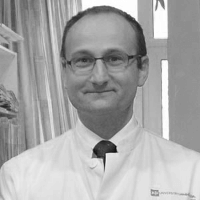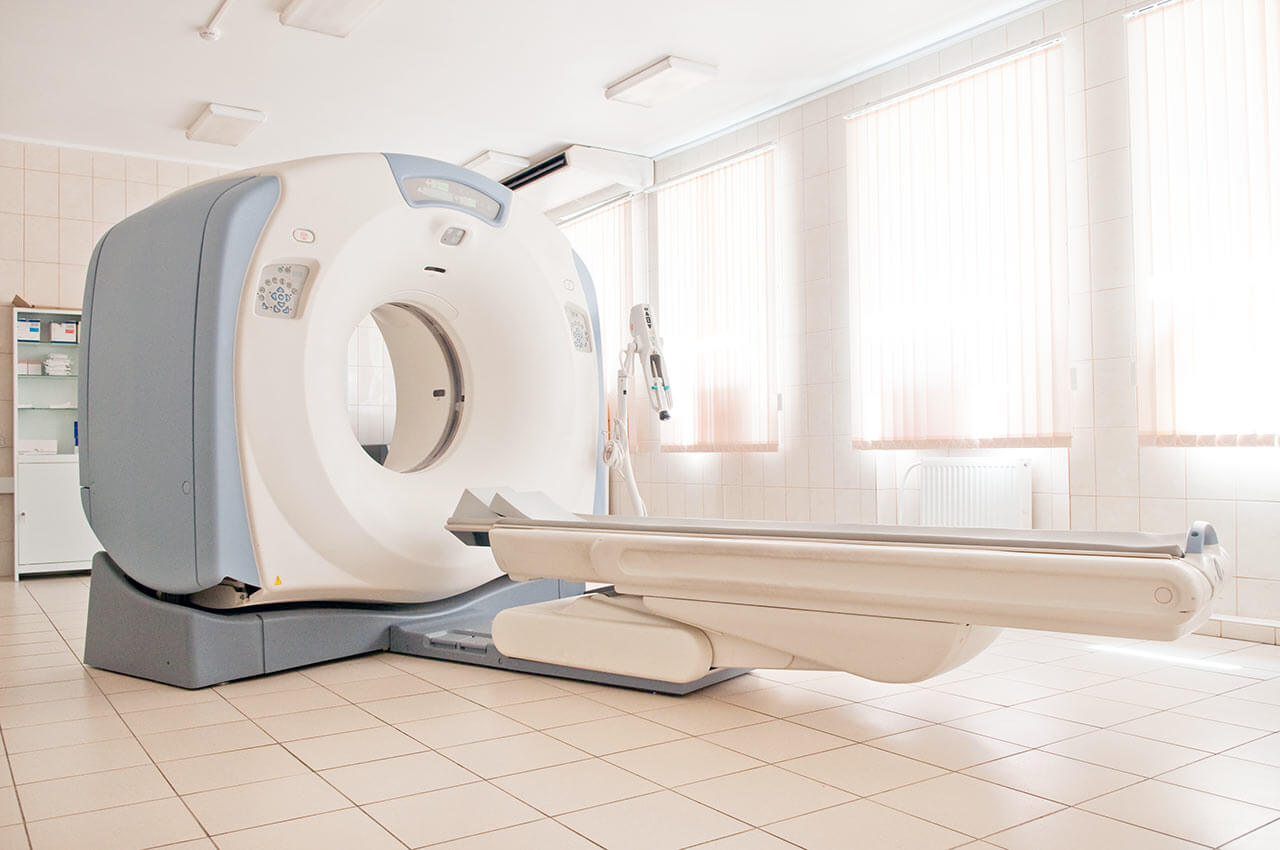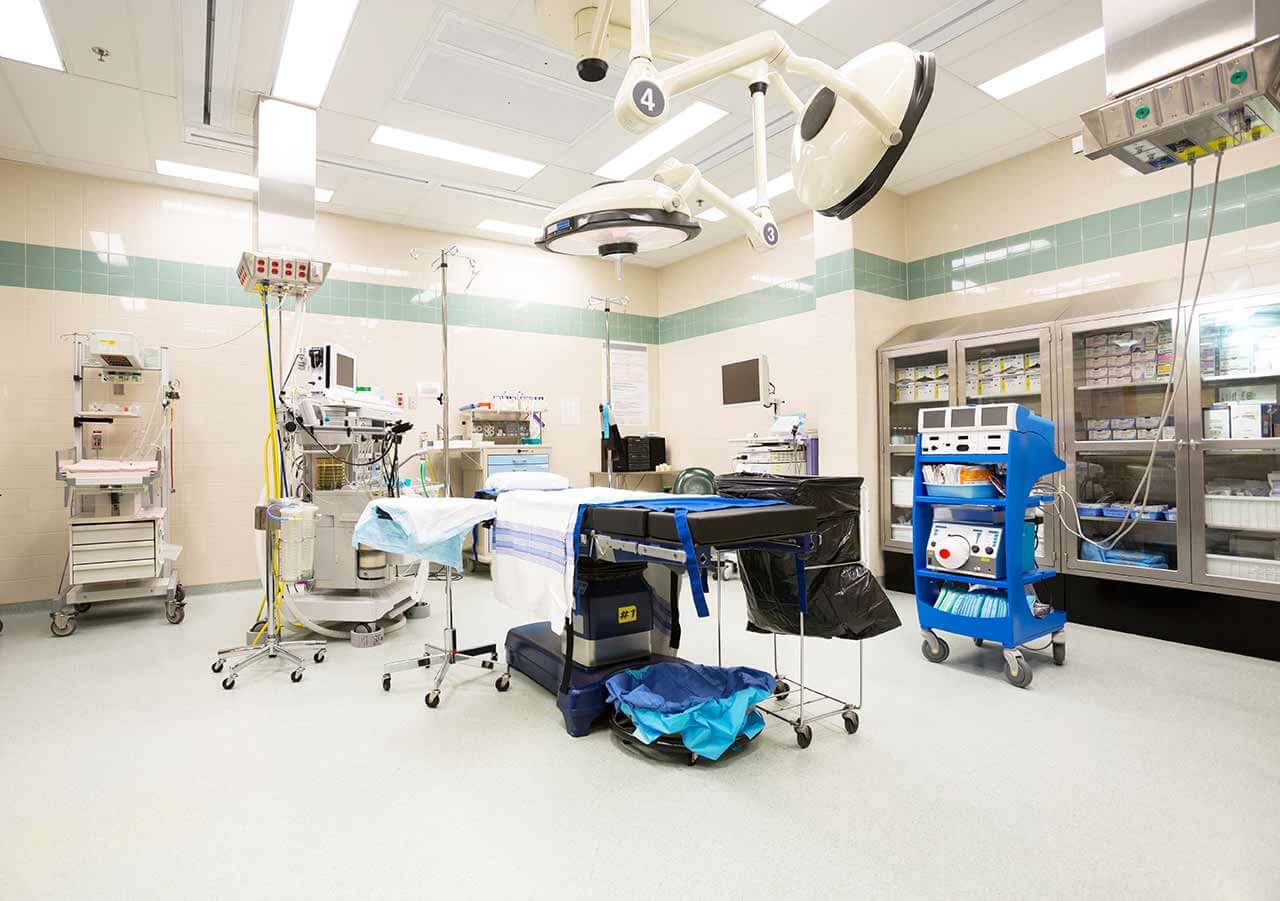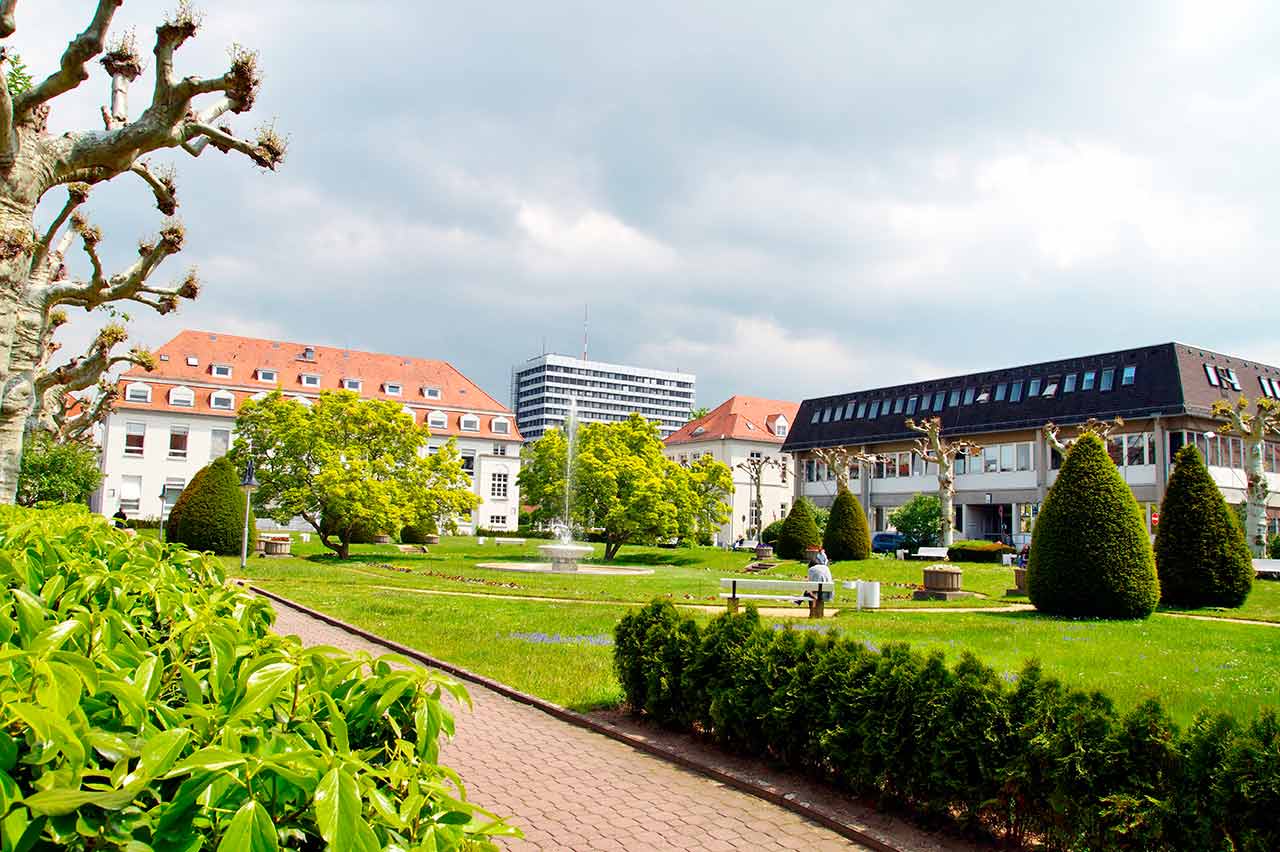
The program includes:
- Initial presentation in the clinic
- Clinical history taking
- Physical examination
- Review of medical records
- Laboratory tests:
- Complete blood count
- General urine analysis
- Biochemical blood test (kidney and liver function tests)
- Indicators of inflammation (CRP, ESR)
- Indicators of blood coagulation
- Immunohistochemical and genetic analysis of tumor cells (if indicated)
- Leukapheresis, processing of T-cells and cultivation of CAR T-cells
- Adjuvant chemotherapy
- Infusion of modified CAR T-cells to a patient
- Control examinations
- Cost of essential medicines and materials
- Nursing services
- Full hospital accommodation
- Explanation of future recommendations
Indications
- Acute myeloid leukemia (AML) that is resistant to the conventional therapy
How program is carried out
Days 1-2. Initial presentation at the clinic. The doctor collects the patient's medical history, looks at his medical records and previous examinations. Special attention is paid to previous cancer treatments and their results, since CAR T-cell therapy is indicated only if the conventional treatment protocols are ineffective. Based on the results of the consultation, the doctor administers the examination, which includes a complete blood count with white blood cell count, assessment of liver and kidney function, immunohistochemical and genetic analysis of tumor cells (if indicated) and other studies.
Day 3. Collecting patient’s blood. During the leukapheresis procedure, doctors harvest at least 100 million T-cells, which will subsequently undergo gene modification. If there are certain clinical reasons, and the patient needs to postpone the subsequent stages of CAR T-cell therapy, the harvested T-cells undergo the procedure of cryoconservation. If the patient is able to continue treatment immediately, then the harvested T-cells are transferred to the laboratory.
Days 4-12. Processing and gene modification of the T-cells pool lasts 7-10 days. During this time, the patient is receiving immunosuppressive chemotherapy drugs. The chemotherapy is aimed at suppressing the patient's own immune system, which will allow CAR T-cells to fight the tumor more effectively.
Day 13. Manufactured CAR T-cells are tested for the microbiological safety and functional activity. After the successful testing completion, the solution with CAR T-cells is administered to the patient intravenously.
Day 14 and other days. Control examination and further medical supervision in the hospital are carried out. If there are no side effects of CAR T-cell therapy, a stable tendency towards normalization of blood count is observed and the patient has stable general health condition, the patient is discharged from the hospital. Before the discharge, the patient receives the detailed recommendations for further follow-up during the disease remission.
Required documents
- Complete blood count with white blood cell count
- Biochemical blood test (renal and liver function tests), if available
- Bone marrow biopsy results
- CT scan, if available
Service
You may also book:
 BookingHealth Price from:
BookingHealth Price from:
About the department
The Department of Pediatric Hematology, Oncology, Hemostaseology at the University Hospital Mainz offers the full range of outpatient and inpatient therapy for children and adolescents with oncological diseases, as well as with blood pathologies and coagulation disorders. The department specializes in the treatment of acute leukemia, lymphomas, malignant neoplasms of the central nervous system, as well as tumors of other localization. The department ranks among the largest Centers for Pediatric Oncology and Hematology in Germany. The Chief Physician of the department is Prof. Dr. med. Jörg Faber.
The department is part of the University Cancer Center Mainz (UCT Mainz). The specialists of the department strive to constantly improve diagnostic and therapeutic methods in order to offer the very latest medical advances to patients as soon as possible and to provide the best cancer treatment.
The service range of the department includes the diagnosis and treatment of the following diseases:
- Anemias
- Iron deficiency
- B12 and folic acid deficiency
- Hypoplastic or aplastic
- Primary and secondary erythrocytosis
- Leukocyte disorders
- Thrombocytopenic purpura
- Hemorrhagic vasculitis
- Hemophilia A and B
- Rare coagulopathies
- Hereditary factor II deficiency
- Hereditary factor VII deficiency
- Hereditary factor X deficiency
- Acute leukemia, including cytochemical blast cell examination
- Lymphoblastic
- Myeloblastic
- Lymphomas
- Lymphogranulomatosis or Hodgkin's lymphoma
- Non-Hodgkin lymphomas
- Malignant neoplasms of the central nervous system
- Medulloblastoma
- Malignant gliomas
- Ependymoma
- Hemangioblastomas
- Other CNS tumors
- Other diseases and pathological conditions
Curriculum vitae
- 1992 - 1998 Study of Medicine at the Johannes Gutenberg University Mainz.
- 1998 - 1999 Study of Medicine at Ludwig Maximilian University of Munich.
- 1999 3rd State Exam at Ludwig Maximilian University of Munich, note "Excellent".
- 1995 - 2000 Degree in the Center for Pediatric and Adolescent Medicine at the University Hospital Mainz; PhD thesis defense (summa cum laude).
- 1999 - 2004 Training in Pediatric and Adolescent Medicine in the Center for Pediatric and Adolescent Medicine at the University Hospital Mainz.
- 2004 Specialist in Pediatric and Adolescent Medicine.
- 2005 - 2008 Postdoctoral Fellowship at the Children's Hospital Boston, Dana Farber Cancer Institute, Harvard Medical School.
- 2009 Doctoral dissertation defense in Pediatric and Adolescent Medicine, focus on Pediatric Hematology, Oncology at the University Hospital Mainz; thesis subject – "Development of new strategies for therapeutic effect on leukemic stem cells in the treatment of pediatric leukemia".
- Since 12.2011 Professorship in Pediatric Hematology, Oncology, Johannes Gutenberg University of Mainz (with a time limit).
- 2012 Specialization in Pediatric Hematology and Oncology and additional qualification in Drug Cancer Therapy.
- Since 12.2017 Professor in Pediatric Hematology, Oncology, Johannes Gutenberg University of Mainz (without a time limit).
Prizes and Awards
- 1993 - 1999 Fellow of the Training Foundation of the German People.
- 1995 Young Investigator Award at the Johannes Gutenberg University of Mainz.
- 1997 Scholarship of Dr. Carl Duisberg Society.
- 2001 Prize for PhD thesis defense from the Johannes Gutenberg University of Mainz.
- 2004 Award for the Best Report of the European Society for Pediatric Infectious Diseases, annual congress.
- 2004 Award for the Best Report, German Society of Pediatric Infectology (DGPI), annual meeting 2004.
- 2007 Prize for the Best Report, German Society of Pediatric Infectology (DGPI), annual meeting 2007.
- 2009 Lina Marguerite Siebert Prize for Achievements in Cancer Research; Prize for Doctoral Dissertation Defense.
- 2009 Appointment to the post of the Trusted Assistant Professor of the Training Foundation of the German People.
- 2016 Research of the Head and Neck Cancer Research Foundation.
- 2016 Award for the Best Report on the topic: "Molecular study of highly malignant neuroepithelial CNS tumors with a change in the BCOR gene, identification of possible therapeutic goals and a new category of tumor", 17th International Symposium of Pediatric Neuro-Oncology, Liverpool, UK.
- 2018 Research Award of the Head and Neck Cancer Research Foundation.
Membership in the Scientific Societies and Committees
- Member of the Society of Pediatric Hematology/Oncology (GPOH).
- Member of the DRG Working Group.
- Member of the Working Group named "Long-term Observation".
- Member of the Working Group "Genetic Predisposition to Cancer".
- Member of the National Study Group of the COALL/ALLtogether research group.
- Member of the National Training Commission of the Wilms Tumor Study Group SIOP.
- Member of the HIT-Life Brain Tumor Research Group, the direction of late cardiovascular complications.
- Responsible Representative of the University Cancer Center for Pediatric Hematology, Oncology and Hemostaseology Mainz.
- Member of the International Society of Pediatric Oncology (SIOP).
- Member of the German Society of Pediatric Infectology (DGPI).
- Member of the German Society of Pediatric and Adolescent Medicine (DGKJ).
- Member of the Transfusion Commission of the University Hospital Mainz.
- Member of the Coordinating Committee of the Central Biobank of the University Cancer Center at the University Hospital Mainz.
- Deputy Speaker of the Clinical Research Working Group of the University Cancer Center at the University Hospital Mainz.
- Member of the Outreach National Working Group in the Community of National Cancer Centers.
- Member of the National Commission of the Training Foundation of the German People.
- Chairman of the Commission for the Presentation of Prizes for the Scientific Activities of the Foundation for Pediatric Cancer Mainz.
- Delegate of the District Medical Association of Rhine-Hesse.
Photo of the doctor: (c) Universitätsmedizin der Johannes Gutenberg-Universität Mainz
About hospital
The University Hospital Mainz is one of the best maximum care medical facilities in Germany and an internationally recognized scientific center. There are more than 60 departments and institutes, which represent all fields of modern medicine. The hospital serves more than 68,000 inpatients and more than 273,000 outpatients annually, which testifies to the excellent reputation of this medical institution.
The key to the successful clinical practice is also a highly qualified medical staff, which consists of 7.800 employees from various fields. The doctors of the hospital are convinced that each clinical case requires an individual approach, therefore, they devote much time to consultations and communication with patients. The main goal of all hospital employees is to provide an optimal medical care based on the use of the state-of-art diagnostic and therapeutic measures, as well as the introduction of the latest scientific achievements into the medical practice.
The best interns and assistant physicians are trained here. The world-famous leading physicians of the hospital share their long experience and professional skills. Naturally, an integral part of the university hospital work is research, thanks to which many innovative possibilities in the field of diagnostics and therapy have been developed.
Photo: (c) depositphotos
Accommodation in hospital
Patients rooms
The patients of the University Hospital Mainz live in bright, spacious and comfortable rooms. The patient rooms are equipped with modern electronically adjustable beds, which at the touch of a button automatically assume a specified position. Also, there is a TV and a telephone in the patient rooms. To use them, it is necessary to get a prepaid card (in vending machines at the entrance to the hospital). The use of a TV is free, but the patient will need headphones. Telephone calls are made for a fixed fee, which will be withdrawn from the prepaid card at discharge from the hospital. Also, each patient room is equipped with an ensuite bathroom with shower, washbasin and toilet.
Meals and Menus
The patients of the hospital are offered a tasty and balanced three meals a day: breakfast, lunch and dinner. The menu also includes vegetarian and dietary dishes. In addition, for both patients and their visitors there are available cafeterias and bakeries, where one can buy baked goods, snacks, hot and cold drinks.
Further details
Standard rooms include:





